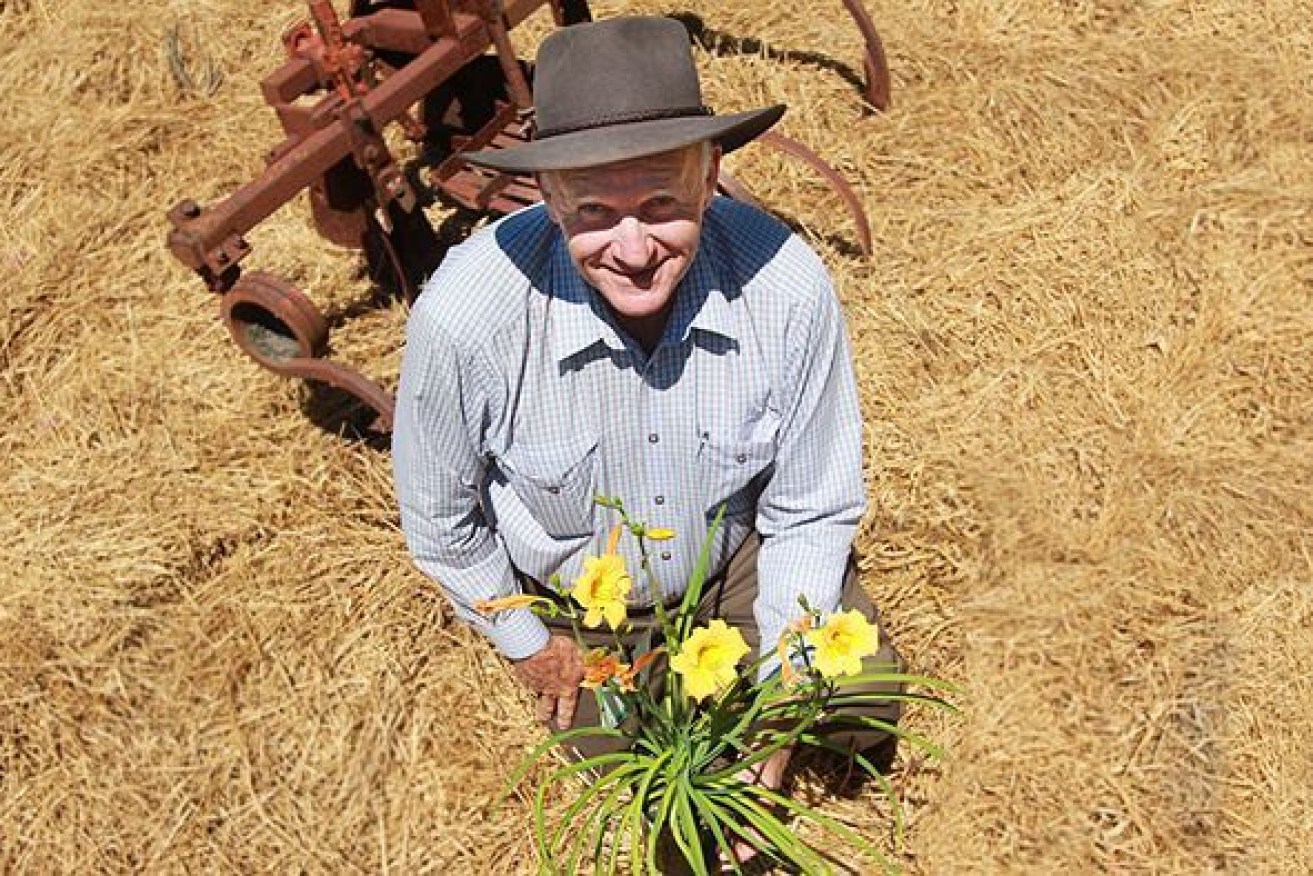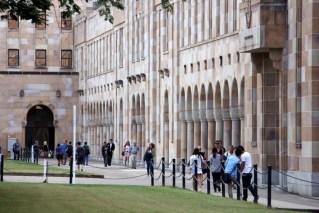Gardening can help ease the stress of isolation
ABC gardening guru Tom Wyatt uses gardening as a stress reliever and has these tips on turning your backyard into a tranquil retreat.

Gardening guru Tom Wyatt says good gardeners aren't born, they're made. Photo: ABC
Gardening has a long-held reputation as a salve for stress, anxiety, and depression.
This so-called green therapy is on the rise as Australians come to terms with a pandemic, and what that means for our immediate and long-term futures.
Nursery industry body Greenlife Australia said plant suppliers around the country are now hurriedly moving their businesses online so they can continue to service gardeners through the coronavirus crisis.
CEO Peter Vaughan said gardening had a proven ability to improve mental health and physical wellbeing.
“It’s a type of therapy for all ages and stages of life,” he said.
“We’re trying to encourage people to trade screen time for green time.”
ABC gardening guru Tom Wyatt said he had used gardening as a stress reliever for as long as he could remember.
“I use it for spiritual rejuvenation of the mind,” he said.
“If you are frustrated you can go out into the corner of the garden and being there, around nature, it calms you.”
After spending more than half a century in the industry, Wyatt has accumulated a wealth of knowledge and understanding when it comes to backyard gardens.
Here are his top tips that you can put into action right now:
1. Break out the secateurs
Wyatt said autumn is a great time to carry out any minor pruning to shrubs and trees in your established garden.
“The heat has gone out of the atmosphere so you won’t get severe sunburn on top of all the branches,” he said.
“It’ll create more growth, and the more new shoots you’ve got the more flowering you are going to get.”
2. Foil the fruit fly
“Autumn is a time when the fruit flies come meandering in, sticky-beaking and marking their territories and stinging the fruit, especially citrus,” Wyatt said.
He said traps are an effective and less harmful way of dealing with the insects, and it is easy to make your own.
The mix:
- 1 litre of water
- 1 cup of urine (yes, urine)
- 3 teaspoons of vanilla essence
- a teaspoon of vegemite and a cup of raw sugar
- mix in a bucket and leave for five days.
The trap:
- use a milk bottle or plastic bottle, preferably one with a yellow lid.
“They are attracted to the colour yellow,” he said.
- Make a hole in the lid
- pour mixture into the bottle to a depth of about 2.5cm
- attach string or fishing line to the bottle so it can be hung upright at the perimeter of a tree, at a rate of about four traps per mature tree
- change the mixture every 10-15 days.
3. Plan ahead
If you are just starting out in the garden or creating a vegetable patch, Wyatt said it is important to plan out your garden in advance.
He said now is a great time to plant Mediterranean vegetables, but it was easy to go wrong if you did not do your groundwork and get the soil right.
“Anything that fruits above the ground wants a sweet soil,” he said.
“Other vegetables like potatoes, sweet potatoes, and turnips and things, they want a sour soil.”
Wyatt said wise gardeners have separate beds for different types of vegetables.
To increase the sweetness of your soil, Wyatt recommended:
- apply two clenched handfuls of dolomite per square metre
- add some blood and bone and then dig it all in.
Or to make it more sour:
- apply one clenched handful of sulphur to a square metre
- dig it in, and in 10 days it will be ready for planting.
4. Petal power
For those gardeners who are more focused on aesthetics than food production Wyatt recommended the addition of flowers.
“They can bring a beautiful harmony to your garden,” he said.
Dig in plenty of compost, give it nutrients like blood and bone on a regular basis, and you will not have any trouble.
“Gardening is not complicated, it’s just that you need to do a bit of research first,” he said.
5. Cut costs with DIY compost
Wyatt said composting was one of the most effective and environmentally friendly ways to improve your garden’s health.
And now that we are spending more time at home, he said there was no excuse not to give it a try.
To start:
- get two bins, each about one metre wide
- in the first bin place your daily household food scraps as well as branches, leaves, and other dried green waste
- mix well and give it a dressing of blood and bone.
“When you have it filled with all that organic material, which will take some time, then shift it all over the next bin and start the process again,” Wyatt said.
From the second bin, take the compost as necessary and add it to your garden.
– ABC / Megan Hendry












